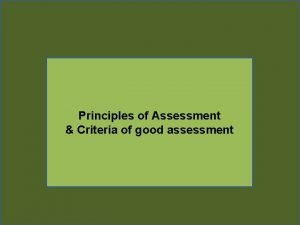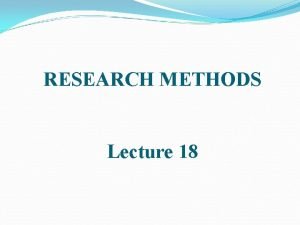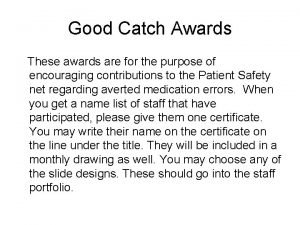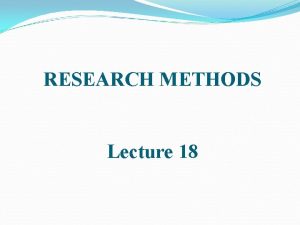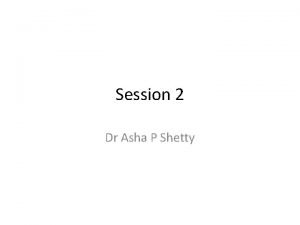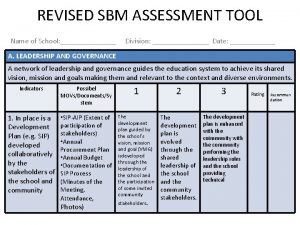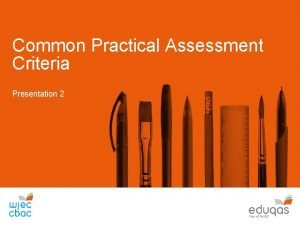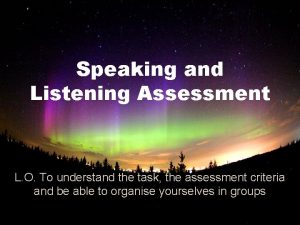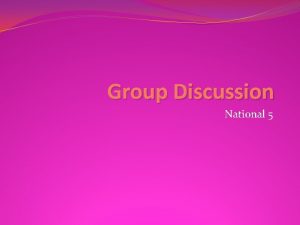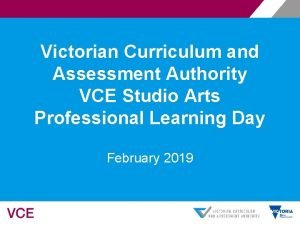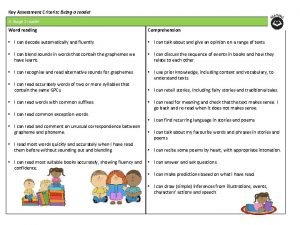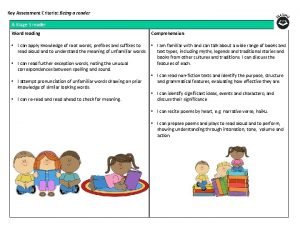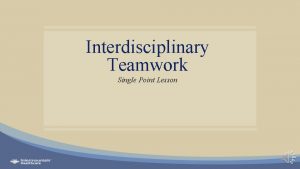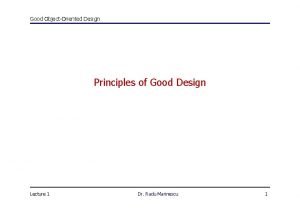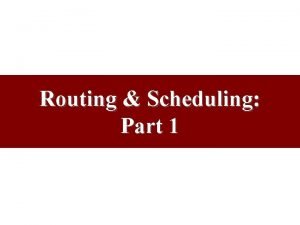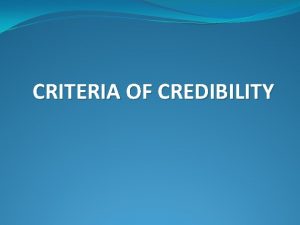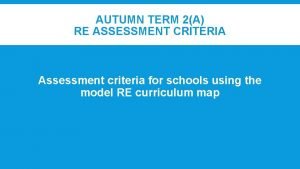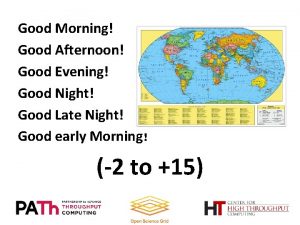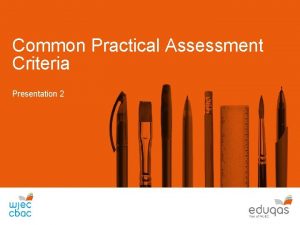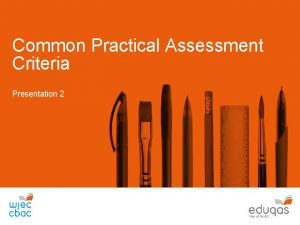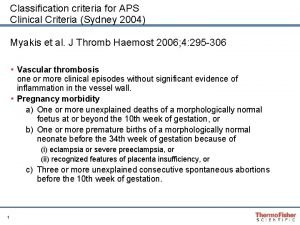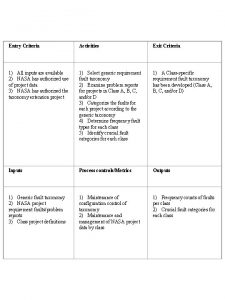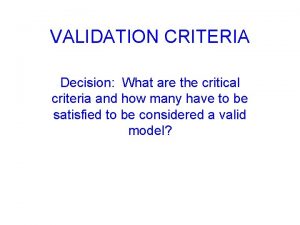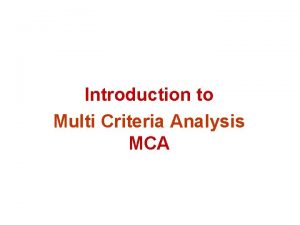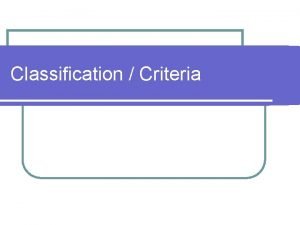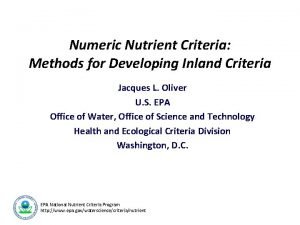Principles of Assessment Criteria of good assessment Assessment




















- Slides: 20

Principles of Assessment & Criteria of good assessment

Assessment • Learning objectives – Define assessment – State the needs of assessment – Explain assessment strategy – Discuss the criteria of good assessment

Assessment • The process of documenting knowledge, skills, attitude and beliefs usually in measurable terms

Why are we assessing? • • Ensuring competence Grading student’s learning Providing feedback Evaluating the curriculum ( content, methods of instruction)

What should be assessed • • • Knowledge Skill Attitude Application of Knowledge & skill Communication

How should it be assessed? • Test construction – The formulation of test matrix or blue print – Selection of test items – Editing and reviewing the final product

Text matrix ( blue print) Skill domain History taking Physical examination X-Ray Data interpretation Instrument CVS RS Neuro GIT Renal Endocrine + + +

When should be assessed? • Formative – During course • Summative – End of course

Formative assessment • Goals – Help students discover what is expected of them – Monitor progress – Provide opportunities for the practice and application of basic knowledge and skills – Encourage interaction between tutors and students – Provide rapid feedback

Summative Assessment • Goals – Ascertain student’s improvement – Grade students – Certify students

Types of assessment Assessment Formative Assessment for learning Summative Assessmentassessment of learning

Who should assess? • Teachers of the department • External examiner • Student themselves

Interpretation of results & standard setting • Criterion based assessment – Candidates are measured against defined criteria – Driving test • Norm referenced assessment – A way of comparing students – Selection of predetermined number of candidates in an admission test

Criteria of a good examination • • Validity Reliability Objectivity Feasibility

Validity • Validity refers to the ability of the instrument to measure what it is suppose to measure. • Validity is a matter of degree

Validity • Validity improves with – Mapping examination content against the curriculum – Putting emphasis on essential and important curriculum content – Selecting appropriate methods

Reliability • Extent to which an assessment produces the same results when used repeatedly under the same condition on same group

Objectivity • Means scores will be same if examinees performance is examined by two or more examiners – MCQs are 100% objective – Essay questions are highly subjective

Objectivity • An assessment will be objective if – Question is specific – Each question have fixed answer – Marks are allocated in every sector of the question according to their weight – Answer are documented – Having checklist – Examiners are trained

Feasibility • Cost effectiveness – Instruction time involved in developing, administrating, scoring, interpreting and reporting results • Practicability – Resource available, number of students, staff, patients, space
 Criteria of good assessment
Criteria of good assessment Good deeds good words good thoughts
Good deeds good words good thoughts Hello hello good afternoon
Hello hello good afternoon Cómo se dice buenas tardes
Cómo se dice buenas tardes You are good when there's nothing good in me
You are good when there's nothing good in me Buenos afternoon
Buenos afternoon Criteria for good measurement in research methodology
Criteria for good measurement in research methodology Great catch award
Great catch award Criteria for good measurement
Criteria for good measurement Criteria of a good research problem
Criteria of a good research problem Sbm movs
Sbm movs Common practical assessment criteria
Common practical assessment criteria Association of british climbing walls
Association of british climbing walls Success criteria for speaking
Success criteria for speaking Group discussion assessment criteria
Group discussion assessment criteria Studio arts assessment criteria 2021
Studio arts assessment criteria 2021 Key assessment criteria
Key assessment criteria Key assessment criteria
Key assessment criteria Single point lesson
Single point lesson Ood goodness criteria
Ood goodness criteria Principles of good routing and scheduling
Principles of good routing and scheduling
